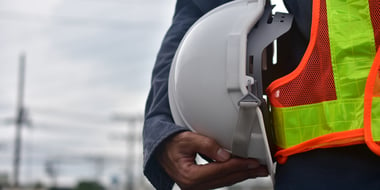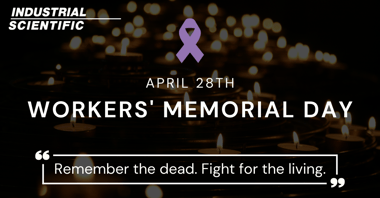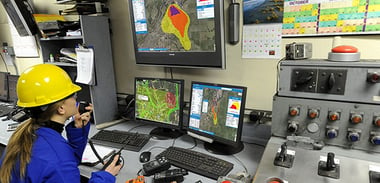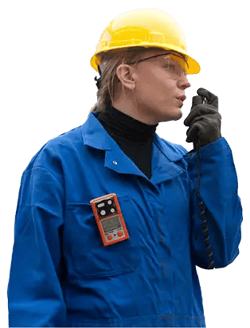April 28 marks a solemn day each year. Depending on where you live, it is known as Workers’ Memorial Day, Day of Mourning, or International Workers’ Memorial Day, and it remembers and honors those workers who were killed, disabled, injured, or made unwell by their work.
On this Workers’ Memorial Day, our thoughts turn to healthcare and emergency workers, the heroes on the frontline of a global pandemic. Nearly every day, a news report reminds us that one of these heroes has died from COVID-19, and the truth is, we may never know how many of them died as the result of a workplace exposure. Six months ago, we could not have imagined that a virus would cause so many work-related fatalities.
We also want to recognize the essential workers who continue to make PPE and other products to protect our workers and keep our essential industries running, including those that provide food for us, deliver our mail, and provide all the other goods and services necessary to maintain our quality of life.
Each year in the United States, 5,000 workers suffer fatal injuries and never return home from work, while many more die from work-related illness. Worldwide, 5,000 workers die each day, according to the International Labour Organization, which estimates that approximately two million workers lose their lives annually due to occupational injuries and illnesses. For the most part, these are preventable incidents and exposures.
In 1985, my dad and grandfather, Kent and K.E. McElhattan, started Industrial Scientific Corporation with a focus on developing methane detection devices to help prevent underground mine tragedies that over history have ravaged so many communities. The company continues to build upon this work, preserving human life in face of potentially deadly gas hazards across many industries.
As the world and workplace have evolved, we know it isn’t enough to just do “safety” stuff anymore. The work our company is doing is focused both on making it easier to preserve human life and on delivering safer, cleaner, more efficient operations. The companies that have since joined Industrial Scientific were founded with the same vision: to prevent workplace fatalities, injuries, and illnesses. I work alongside 1,200 people in 22 countries around the world pushing hard to fulfill our vision of eliminating death on the job by 2050.
Intelex Technologies, acquired by Industrial Scientific in 2019, evolved from the aftermath of the Bhopal gas tragedy in 1984, when the loss of thousands of lives underscored the need for proactive environment, health, and safety (EHS) management. Union Carbide’s industrial gases division developed an EHS management system to ensure such a tragedy would never occur again. When the paper-based system became insufficient for the complexity of the operations, Intelex founder Ted Grunau was tasked with developing the world’s first streamlined EHS software, building a digital system in the shadow of Bhopal. The Intelex team today continues their great work to drive positive, strategic impact for the environmental, safety, health, and quality performance of our customers.
If you ask the “5-whys” in an after-action review on an incident, you’ll typically see factors align that can be predicted and thus prevented. Predictive Solutions Corporation applies predictive analytics in a way that enables construction, mining, energy, insurance, and other companies at high risk for catastrophic injury or loss to predict and prevent worker injuries.
At the same time, our team at SAFER Systems, who also joined us in 2019, continues their pioneering work around chemical release monitoring, modeling, and emergency response management to ensure the safety and health of those in and around production facilities.
I couldn’t be prouder of the work these teams do.
Eliminating death on the job is our work to do, our problem to solve—not one we can push to future generations to solve.
As health and safety professionals, I know you feel the same way and are dedicated to the same goal: saving lives. The world changes when someone says, “This is stupid,” and does something about it. So let’s do something about it.
There are many other organizations – the National Safety Council’s Work to Zero Campaign and the Campbell Institute, for example – that are helping set the bar here. Join us and them in raising awareness and helping eliminate death on the job by 2050. Thanks to those of you dedicating your careers toward this important work.



